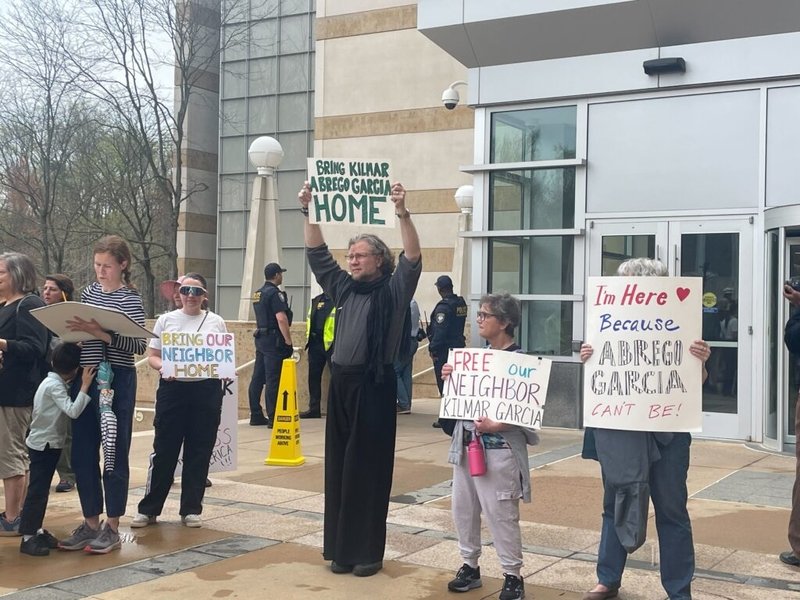When the federal government closed Castle Air Force Base in Merced County in the 1990s, the dilapidated buildings and vast, aging runway it left behind seemed more like a liability than an opportunity.
But by 2018, the old runway where B-52 bombers once flew had found a new and unexpected customer: Google, which was testing its experimental self-driving cars, far from the prying eyes of Silicon Valley.
At the urging of then-State Assemblyman Adam Gray, California established the $6.5 million That year, it expanded its autonomous vehicle testing program at the old base.
A few years later, Gray invested there too.
A company in which Gray holds a minority stake bought four apartment buildings on the former base site from Merced County in 2022, according to a Times review of business reports, property records and Mr. Gray's financial disclosure documents. Mr. Gray's connection to that real estate transaction has not previously been reported.
Records show the sale closed in August 2022 for $600,000, and the property is now valued at more than $2.5 million. Gray's agent said the investment demonstrates his interest in providing affordable housing, and that he has not yet realized a profit because of the high cost of renovations.
Still, the real estate deal in the rural California town of Atwater is drawing scrutiny as Gray, a Democrat, fights to unseat first-time U.S. Rep. John Duarte (R-Modesto). The race in California's 13th Congressional District is a tough rematch from 2022, when Duarte beat Gray by 564 votes, the second-narrowest margin of victory in the nation.
The election is one of a handful across the country that is seen as crucial in determining which party will control Congress after the November election.
Republicans have questioned the timing of Gray's purchase, which came four months before he left Congress and after California officials The site has been awarded about $50 million in new funding. A 2023 grant from the California Department of Transportation allowed Merced County to build a rail hub on the base site to handle cargo loaded onto trains from the ports of Long Beach and Los Angeles.
“Mr. Gray's selfish scheme reveals his true colors as a Sacramento politician who lines his own pockets at the expense of the trust and hard-earned money of Valley families,” said Ben Petersen, spokesman for the National Republican Congressional Committee, which works to elect Republicans to the House of Representatives.
Petersen accused Gray of “commuting taxpayer money with personal gain” and said the condo deal should be investigated.
Gray's campaign and associates said that far from lining his pockets, the old Castle Air Force Base apartments are in need of major renovations and that Gray is actually losing money.
Gray's campaign manager, Ben Rodriguez, said the allegations were false and “intended to distract voters from John Duarte's dismal record.”
“Adam Gray has brought real support to families in this district, but Duarte makes it worse for them with every day he spends in Congress,” Rodriguez said.
Gray is a minority owner of Gemeny LLC, which owns the apartments on the base. Gemeny is a subsidiary of a family-owned residential and commercial construction company, of which Gray is a member, the company said.
According to the company, Gray first learned about the Castle Air Force Base Apartments about six months before the sale, when “partners who own other Castle properties” approached Gray with the idea of renovating the 80-unit complex to provide affordable housing.
Four modest former Air Force barracks buildings had fallen into disrepair, and three were vacant, but the company said Merced County had classified the property as surplus and valued the buildings and the 5.3 acres below them at between $400,000 and $600,000.
The company said the county sold the building for $600,000 because “there were no other competing offers.”
The company has since spent millions of dollars on renovations, “which is exactly what Merced County intended when the property was sold in a public auction process,” the company's attorney, Richard Martini, said in a written statement.
When the sale was completed, Gray was still representing the Modesto area in the state Legislature.
A Google Waymo self-driving car drives on a road at the company's facility on the grounds of the former Castle Air Force Base (now a municipal airport) in Atwater, California, in 2017.
(San Francisco Chronicle/Hearst Newspapers via Getty Images)
The company said Gray owns 30% of the company that owns the apartments, but his name is not listed on the company's state business filings.
Gray first disclosed his investments in his 2022 Form 700, a financial disclosure document California lawmakers are required to file annually with state ethics officials.
Government experts said Gray's real estate transactions did not appear to have violated the law.
But they said elected officials who invest in real estate must be wary of signs of conflicts of interest, especially if they are investing in their own districts.
Dan Schnur, former chairman of the California Fair Political Action Committee, said Gray's real estate investments in the property and the taxpayer money put into it before and after that investment are “suspicious.”
“Everyone is entitled to the benefit of the doubt, but the best way to get the benefit is to earn it,” Schnurr said. “Public officials should be aware of how these things will be perceived.”
Gray filed a federal financial disclosure form with the House of Representatives after losing the 2022 congressional election, but in it he did not disclose his real estate investments or his stake in a limited liability company that owns the building.
Gray's campaign argued that Gray did not mention the condo investments because he had no income to report, but did disclose his position at the parent company.
In new filings released this month as he runs for his second term in Congress, Gray said he received between $100,000 and $1 million in 2023 and between $50,000 and $100,000 in the first half of 2024 from the limited liability company that owns the apartment complex.
The campaign said the figures represent revenue for the entire company, not Gray, and were compiled out of “an abundance of caution.”
Gray will not receive any income from the business in 2023 or 2024 and the investments are not profitable, the campaign said.
The former air force base, now called the Castle Commerce Center, spans roughly three square miles and is home to miles of empty roads as well as dozens of private and government businesses, including a federal prison, a post office, Merced's commercial airport and Google's self-driving car company, Waymo.
Merced County converted a large swath of unused paved roads at the base into a testing site after Gray helped secure a $6.5 million grant for an autonomous vehicle testing site in 2018. There is now a 2.2-mile test highway complete with traffic lights, signs, and on- and off-ramps where vehicles can practice driving in an urban environment.
The site, run by an Ohio-based company, includes Silicon Valley companies and 24 major automakers.
At the height of that boom, Merced County supervisors continued to sell parts of the base as surplus land, including a 5.3-acre site and 80-unit apartment complex, which the board bought. 4-0 votes In Gemenii in May 2022.
At the time of the sale, the land was valued at $465,000 and the building was valued at $135,000, according to tax records provided by the company.
The company said it took out an $885,000, 30-year mortgage at the end of 2022 to cover renovations to the building, as well as a $3 million, 15-year mortgage in June of this year.
The company said two buildings have been demolished and renovated so far, including removing asbestos and replacing windows and appliances.
According to tax bills filed by the company, the renovated building is now worth more than $2 million, and the value of the underlying land has increased by $9,300.
The company said the increase in property values is “directly related to the significant financial efforts that Gemeny has made to revitalize this property.” The company said any development on the Air Force base site “has had no impact on the value of the property.”
















